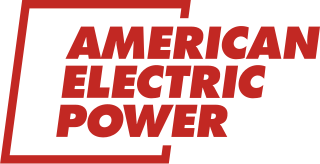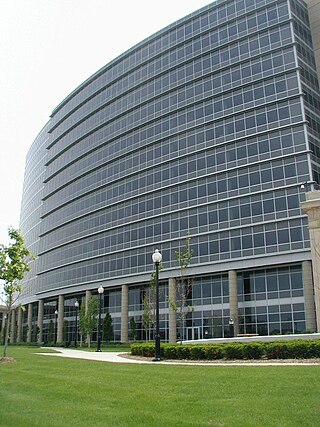Related Research Articles

Beaumont is a coastal city in the U.S. state of Texas. It is the seat of government of Jefferson County, within the Beaumont–Port Arthur metropolitan statistical area, located in Southeast Texas on the Neches River about 85 miles (137 km) east of Houston. With a population of 115,282 at the 2020 census, Beaumont is the largest incorporated municipality by population near the Louisiana border. Its metropolitan area was the 10th largest in Texas in 2019, and 132nd in the United States.

Vermont Yankee was an electricity generating nuclear power plant, located in the town of Vernon, Vermont, in the northeastern United States. It generated 620 megawatts (MWe) of electricity at full power. The plant was a boiling water reactor (BWR), designed by General Electric. It operated from 1972 until December 29, 2014, when its owner Entergy shut down the plant. In 2008, the plant provided 71.8% of all electricity generated within Vermont, amounting to 35% of Vermont's electricity consumption. The plant is on the Connecticut River, upstream of the Vernon, Vermont Hydroelectric Dam and used the reservoir pool for its cooling water.
The Public Service Enterprise Group (PSEG) is a publicly traded diversified energy company headquartered in Newark, New Jersey, US established in 1985 with a legacy dating back to 1903.
Entergy Corporation is a Fortune 500 integrated energy company engaged primarily in electric power production and retail distribution operations in the Deep South of the United States. Entergy is headquartered in New Orleans, Louisiana, and generates and distributes electric power to 3 million customers in Arkansas, Louisiana, Mississippi and Texas. Entergy has annual revenues of $11 billion and employs more than 13,000 people.

The Shaw Group is a pipe and module fabrication firm specializing in induction bending.

American Electric Power Company, Inc. (AEP), is a major investor-owned electric utility in the United States, delivering electricity to more than five million customers in 11 states.

The Edison Museum, a science and history museum about the life and inventions of Thomas Edison, is located in Beaumont, Texas, United States at 350 Pine St. on the grounds of Edison Plaza.

River Bend Nuclear Generating Station is a nuclear power station on a 3,300-acre (1,300 ha) site near St. Francisville, Louisiana in West Feliciana Parish, approximately 30 miles (50 km) north of Baton Rouge. The station has one sixth generation General Electric boiling water reactor that has a nominal gross electric output of about 1010 MWe. Commercial operation began on June 16, 1986. In 2003, owners applied and were approved for a power upgrade of approximately 52 megawatts in 2003. The nameplate capacity is 974 MW.
The Waterford Steam Electric Station, Unit 3, also known as Waterford 3, is a nuclear power plant located on a 3,000-acre (1,200 ha) plot in Killona, Louisiana, in St. Charles Parish, about 25 miles (40 km) west of New Orleans.

CMS Energy, based in Jackson, Michigan, is an energy company that is focused principally on utility operations in Michigan. Its principal business is Consumers Energy, a public utility that provides electricity and natural gas to more than 6 million of Michigan's 10 million residents. Its non-utility businesses are focused primarily on domestic independent power production. Consumers Energy has operated since 1886.
The "Nuclear Power 2010 Program" was launched in 2002 by President George W. Bush in 2002, 13 months after the beginning of his presidency, in order to restart orders for nuclear power reactors in the U.S. by providing subsidies for a handful of Generation III+ demonstration plants. The expectation was that these plants would come online by 2010, but it was not met.

Exelon Corporation is a public utility headquartered in Chicago, Illinois, and incorporated in Pennsylvania. Exelon is the largest electric parent company in the United States by revenue and is the largest regulated electric utility in the United States with approximately 10 million customers. The company is ranked 99th on the Fortune 500.

Constellation Energy Corporation is an American energy company headquartered in Baltimore, Maryland. The company provides electric power, natural gas, and energy management services. It has approximately two million customers across the continental United States.

Southwest Power Pool (SPP) manages the electric grid and wholesale power market for the central United States. As a regional transmission organization, the nonprofit corporation is mandated by the Federal Energy Regulatory Commission to ensure reliable supplies of power, adequate transmission infrastructure and competitive wholesale electricity prices. Southwest Power Pool and its member companies coordinate the flow of electricity across approximately 60,000 miles of high-voltage transmission lines spanning 14 states. The company is headquartered in Little Rock, Arkansas.
Entergy Louisiana, Inc. v. Louisiana Public Service Commission, 539 U.S. 39 (2003), is a Supreme Court of the United States case holding that a federal administrative agency approved public utility tariff preempted a state public utilities commission rate order under the filed rate doctrine.
Downtown Beaumont is the central business district of Beaumont, Texas. It is where the city's highrise buildings are located, as well as being the center of government and business for the region. Downtown Beaumont is currently experiencing a renaissance, with streets, sidewalks and historic buildings receiving significant attention.

The Edison Plaza is a 17-story office building in downtown Beaumont, Texas, located at 350 Pine St. The building is downtown's newest and tallest skyscraper. Originally built by Gulf States Utilities as its headquarters in 1982, it serves as the Texas headquarters for its successor, Entergy, Texas; however, Entergy no longer owns the building and leases four floors only out of the 17 in the building. It is erroneously called "The Entergy Building" but its correct name is still Edison Plaza. On the grounds of the Edison Plaza is the Edison Museum. As of November 2015, Capital One acquired signage rights to the building.

The Electric Bond and Share Company (Ebasco) was a United States electric utility holding company organized by General Electric. It was forced to divest its holding companies and reorganize due to the passage of the Public Utility Holding Company Act of 1935. Following the passage of the Act, the U.S. Securities and Exchange Commission (SEC) selected the largest of the U.S. holding companies, Ebasco to be the test case of the law before the U.S. Supreme Court. The court case known as Securities and Exchange Commission v. Electric Bond and Share company was settled in favor of the SEC on March 28, 1938. It took twenty-five years of legal action by the SEC to break up Ebasco and the other major U.S. electric holding companies until they conformed with the 1935 act. It was allowed to retain control of its foreign electric power holding company known as the American & Foreign Power Company (A&FP). After its reorganization, it became an investment company, but soon turned into a major designer and engineer of both fossil fuel and nuclear power electric generation facilities. Its involvement in the 1983 financial collapse of the Washington Public Power Supply System's five nuclear reactors led to Ebasco's demise because of the suspension of nuclear power orders and lawsuits that included numerous asbestos claims. The U.S. nuclear industry stopped all construction of new facilities following the 1979 nuclear meltdown at Three Mile Island, going into decline because of radiation safety concerns and major construction cost overruns.
Energy is a major component of the economy of Texas. The state is the nation's largest energy producer, producing twice as much energy as Florida, the state with the second-highest production. It is also the national leader in wind power generation, comprising about 28% of national wind powered electrical production in 2019. Wind power surpassed nuclear power production in the state in 2014. Since 2003, Texas state officials have created various initiatives like the Texas Enterprise Fund and the Texas Emerging Technology Fund to develop the economy of Texas.
References
- ↑ Diana J. Kleiner (June 15, 2010). "Gulf States Utilities Company". Handbook of Texas Online. Texas State Historical Association. Retrieved October 26, 2015.